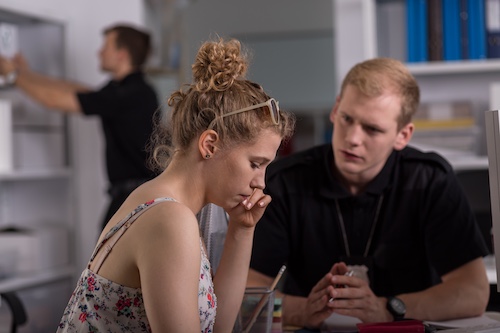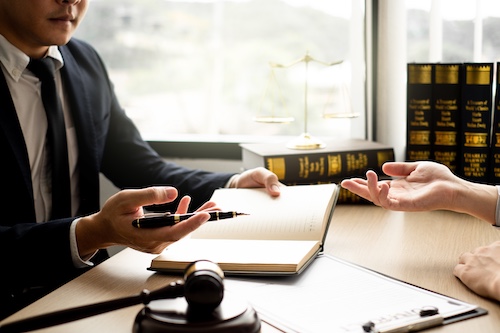Should You Talk to Police Without a Lawyer Present in Tennessee?
If a police officer wants to speak with you, your first move should be silence, not answers. Many people believe they can explain their way out of a problem, only to end up facing criminal charges. Whether you are under arrest, stopped in traffic, or invited to the station for a “quick chat,” speaking without a criminal defense lawyer can cost you your freedom.
In this blog, you will learn why speaking to police without a lawyer can be risky, how your constitutional rights protect you, and what steps to take if law enforcement contacts you, along with why working with an experienced Nashville criminal defense attorney is essential to protecting your future.
Your Constitutional Rights When Dealing with Police in Tennessee
Understanding your legal rights is critical if you are approached by law enforcement officers in Tennessee. These rights protect you during any police questioning, traffic stop, or criminal investigation.
Your Right to Remain Silent Under the Fifth Amendment
The Fifth Amendment gives you the right to remain silent. You do not have to answer questions from police if your answers could be used against you in a criminal case. This right applies whether you are in police custody, at a police station, or speaking to officers during a traffic stop.
Your Right to a Lawyer Under the Sixth Amendment
The Sixth Amendment gives you the right to a criminal defense attorney after you have been formally charged. In Tennessee, this is supported by Rule 5(b) of the Tennessee Rules of Criminal Procedure. Once you request a lawyer, police must stop questioning you until your attorney is present.
Miranda Warnings and Custodial Interrogation
Police must give you a Miranda warning if you are in custody and they want to question you. This warning tells you about your right to remain silent and your right to have an attorney. If officers question you without reading your rights, your answers may not be allowed in court.
How to Clearly Invoke Your Rights
To use your rights, you must speak clearly. Say “I want a lawyer” or “I am using my right to remain silent.” If you do not clearly ask for a lawyer, police may keep asking questions. Once you ask, stop talking until your criminal attorney is with you.
Why You Should Never Speak to the Police Without a Criminal Defense Lawyer
Talking to police without legal representation can harm your case, even if you believe you have done nothing wrong.
Police Officers Are Trained to Get Information
Law enforcement officers are trained to ask questions in a way that encourages people to talk. They may act friendly, suggest they are trying to help, or say they just need your side of the story. These tactics are designed to make you feel safe talking, even during a criminal investigation.
Innocent People Can Make Incriminating Statements
You may think your answers are harmless, but a simple statement can be used to support criminal charges. Even if you are innocent, your words can be taken out of context. Once recorded, they become evidence that the district attorney can use in a criminal case.
You May Not Know You Are a Suspect
Police often ask questions before making an arrest or filing charges. You may be treated like a witness or told you are helping with an investigation. In reality, they may already suspect you of a possible crime. Speaking without a criminal defense lawyer can give them the evidence they need to move forward.
Miranda Warnings Do Not Apply in Every Situation
Police do not have to read you your Miranda rights unless you are in custody and under interrogation. If you are not under arrest, they can question you freely. Anything you say during a voluntary conversation can still be used against you, even without a Miranda warning.
A Criminal Defense Lawyer Protects Your Rights
An experienced criminal defense attorney will tell you when to remain silent and when to speak. Your lawyer understands how the legal system works and will make sure law enforcement follows the law. With legal representation, you avoid giving up your constitutional rights without realizing it.
Common Situations Where People Talk and Regret It
Many people speak to law enforcement officers without a lawyer present because they do not realize the risk. These common situations often lead to criminal charges.
After a Traffic Stop or Ticket
During a routine traffic stop, police may ask questions unrelated to the ticket. They may ask where you are going, if you have been drinking, or if they can search your vehicle. Many people start talking, thinking they have nothing to hide. These statements can lead to arrests or provide enough evidence for a criminal case.
At the Police Station Without an Arrest
Police may invite you to the station to “clear something up” or “give your side.” You are not always told that you are a suspect. Once you agree to talk, the interview may turn into a custodial interrogation. What you say can give law enforcement probable cause to arrest you or file charges.
When Officers Promise Better Outcomes
Some officers imply that cooperating will result in leniency. They may say the district attorney will offer a better deal if you talk. This is not true. Only a prosecutor can make deals. Speaking without legal representation may destroy your chances of a better outcome later in the case.
When You Think You Are Just a Witness
Even if you are not the target of the investigation, you can still face legal risk. You may accidentally provide information that connects you to a possible crime. Law enforcement may change your role from witness to suspect based on what you say during questioning.
When You Want to Explain Yourself
Many people believe they can talk their way out of trouble. They explain what happened to show they are innocent. This often has the opposite effect. Your words can be used to build a timeline, show intent, or support a criminal charge. Once you start talking, it is hard to undo the damage.
What You Should Do If Approached by Law Enforcement
If a police officer approaches you during a traffic stop, investigation, or at your home, your response can affect the outcome of a criminal case.
Stay Calm and Be Respectful
Do not argue or resist. Keep your hands visible and avoid sudden movements. Speak clearly and stay calm. Being respectful does not mean you have to answer questions. Staying polite can reduce tension and help protect your legal rights.
Do Not Volunteer Information
You are not required to answer questions from law enforcement officers. Do not explain your actions or offer details about where you were or what you were doing. Officers are trained to look for inconsistencies and may use your words as evidence in a criminal investigation.
Clearly State That You Want a Lawyer
If police start asking questions, clearly say, “I want a lawyer.” This stops the interview under your Fifth Amendment rights. You must say this directly. If you are in custody, officers must stop the questioning until your criminal defense attorney is present.
Ask If You Are Free to Leave
If you are not under arrest, you can ask, “Am I free to go?” If the officer says yes, you should leave. If the officer says no, you are likely being detained and should stop talking until you have legal representation. This protects you during a possible criminal investigation or future charges.
Contact a Criminal Defense Lawyer Immediately
Call an experienced criminal defense lawyer as soon as possible. Do not wait until after charges are filed. Early legal representation can stop law enforcement from gathering more evidence against you. A criminal attorney will protect your rights and guide you through each step of the legal process.
Consult With an Experienced Nashville Criminal Defense Attorney ASAP!
If law enforcement has reached out to you, or if you think you might be under investigation for a possible crime, the most important step you can take is to remain silent and contact a criminal defense lawyer immediately. Do not try to explain your side or answer questions without legal protection. At Byron Pugh Legal, our team understands how Tennessee’s criminal justice system works and how quickly things can turn against you.
Contact us at 615-255-9595 for a free case consultation today!









